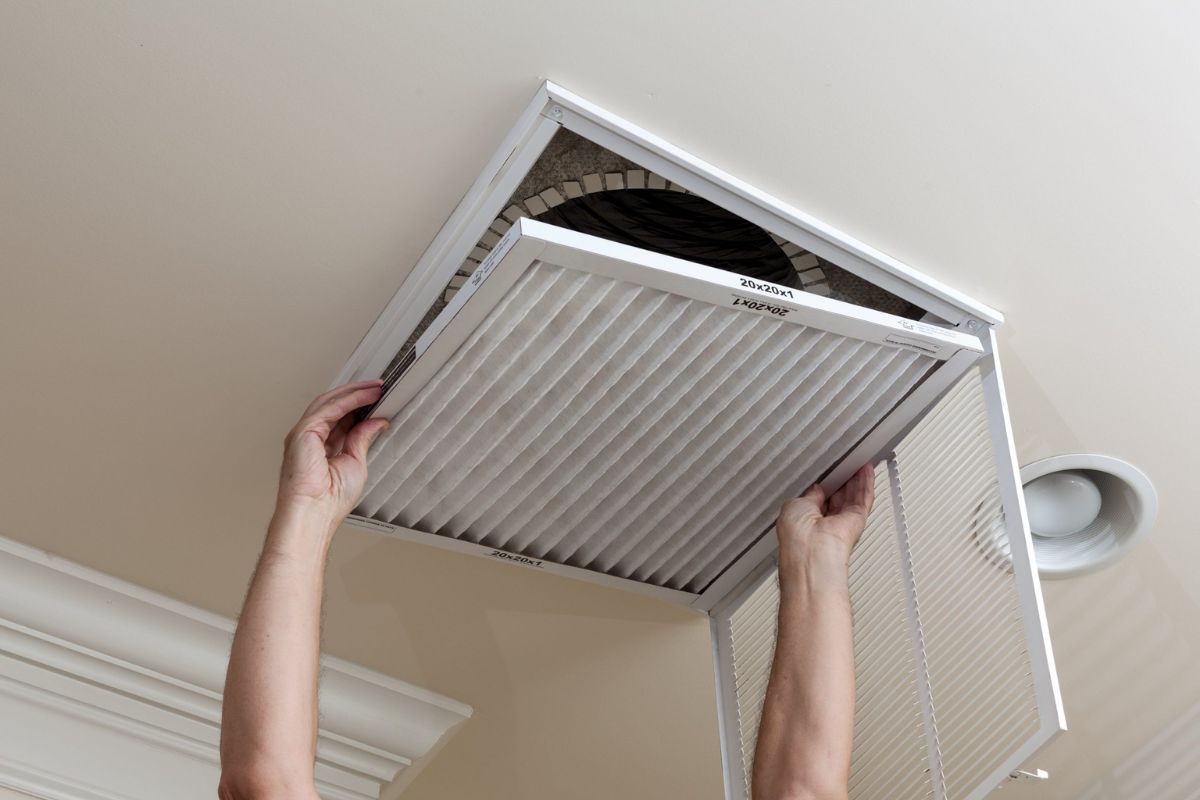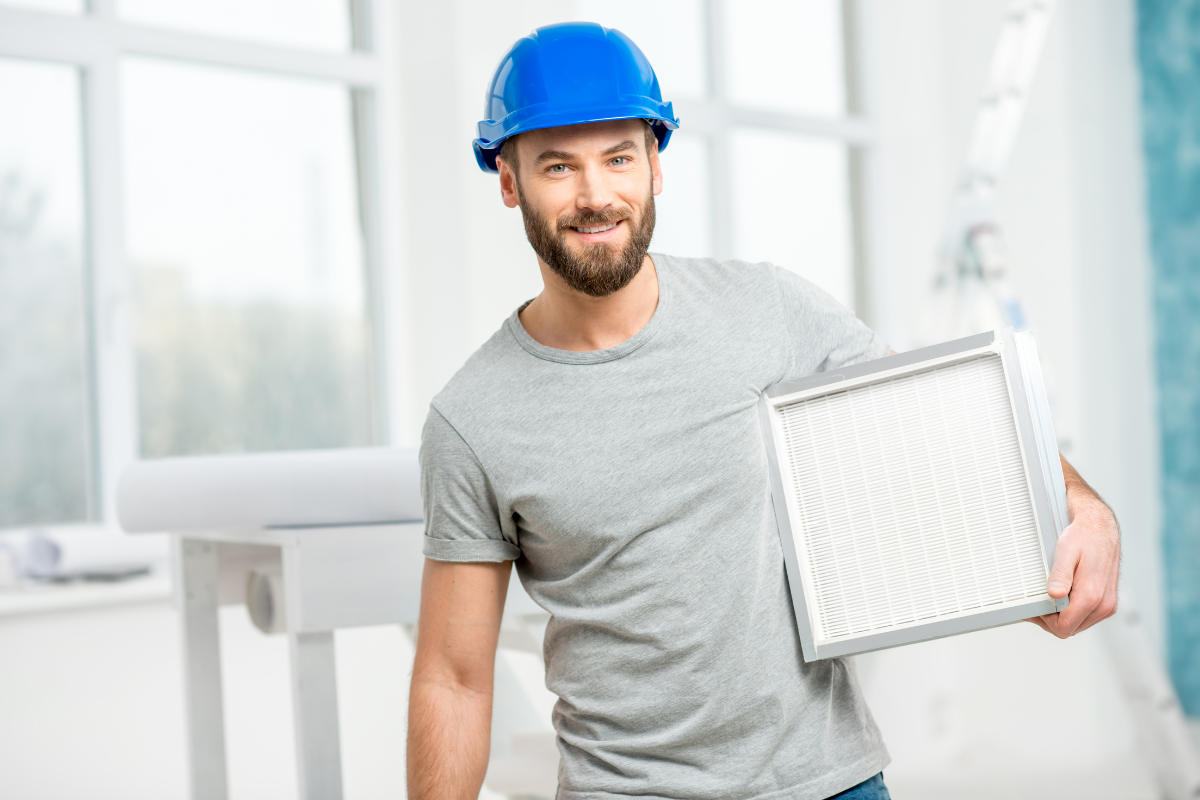Many homeowners replace their air filters once or twice yearly. However, if you want your HVAC system to work well and last a long time, you need to replace your air filter on a regular basis or every time it reaches its capabilities and causes issues to your system. There are some tips out there on saving money and improving air quality with DIY air filter maintenance in your home, but not all of them work. Here is what you should know!
Tips to Save Money and Improve Air Quality with DIY Air Filter Maintenance
You don’t need to be scared of doing things your way, but proper research is essential if you are to save money and improve air quality with DIY air filters maintenance. Here are some tips you should consider:
- Regularly clean or replace your air filter
A dirty air filter can restrict air flow, causing your HVAC system to work more and resulting in higher energy bills. Regular maintenance can help ensure your system works efficiently and effectively, reducing your energy bills in the long run. For example, you can use a vacuum to occasionally remove the accumulated dust and debris on the filter. This prolongs its life and ensures that it is working effectively.
- Replace filters with high-efficiency ones
High-efficiency filters are designed to capture small air pollutants that standard filters may miss. These filters can help improve the air quality in your home, which can be particularly essential for people with allergies or respiratory conditions. Apart from this, these types of filters stop more debris from clogging its vital components, increasing its lifespan.
- Check the filter housing for leaks
If the gasket between the filter and the housing is damaged or worn, it can cause air to leak out of your system. This can reduce your system’s efficiency and cause it to work harder, resulting in higher energy bills.
- Set a reminder to change your filter
With so much going on in our lives, it’s easy to forget to change your air filter regularly. You can set a reminder on your calendar or alarm to change it. Most filters need to be replaced around every 90 days or so, but this can vary depending on usage and what type of filters you have. If you follow some of the tips above, you can save money on energy bills and improve home air quality. It’s also important to note that regular maintenance of your HVAC system, including cleaning and inspections by a professional, can also help improve efficiency and prolong the life of your system, so you shouldn’t skip this.
If you really want to make a change for the better, consider upgrading to a high-efficiency air filter or investing in an air purifier to improve indoor air quality further. Ultimately, maintaining your HVAC system and changing your air filter regularly can significantly impact your home’s comfort and your family’s health.
How to Replace the Air Filter Yourself Step by Step
If you want to replace your air filter yourself, you will need some tools. First, make sure that the replaced air filter is the right size for your unit. The air filter ought to be supplanted by the producer’s guidelines. The owner’s manual or comparing the old and new filter’s dimensions will typically provide this information. Keep a screwdriver close at hand and follows these steps:

- Turn off your HVAC system before doing anything to avoid electric shock.
- Consult your HVAC system’s manual to find out where the air filter is, or search your model on the internet. Many air filters are usually placed in the blower compartment or the return air conduit of your central air framework.
- Wear a face mask or take other precautions as you carefully remove the air filter from the system. This is because you will most likely deal with dust and debris from the old filter, and you should avoid inhaling it.
- Use a vacuum or small brush to clean the area around the air filter, and don’t let any debris or dirt build-up present.
- Once you get the old air filters out, compare them to your new ones to ensure that they are similar in size one last time. If the dimensions don’t correspond, do not install the new filters. It might damage your HVAC system.
How Indoor Air Pollution Puts Your Health at Risk
Indoor air quality can be worse than outdoor air quality, depending on where you live, so improving it is necessary. The effectiveness and longevity of your HVAC system strictly depend on regular maintenance, including frequent air filter replacement. Though it might sound counterintuitive, this is the only way to save money and improve air quality in the long run because you will care for your health and avoid costly repairs and doctor appointments.
You should check and replace the air filter once a month, or as the manufacturer suggests, and exercise caution when handling the old filter to prevent any potential respiratory problems. Even if you are healthy, breathing in polluted indoor air can put you at risk of developing health issues. If you have children, then you should be aware that they are more susceptible due to their young age. Pollution negatively impacts the elderly and those who already have asthma, heart disease, or chronic obstructive pulmonary disease (COPD). Kids and youthful grown-ups are additionally more susceptible to health issues due to poor air quality because they have quicker breathing rates.
















